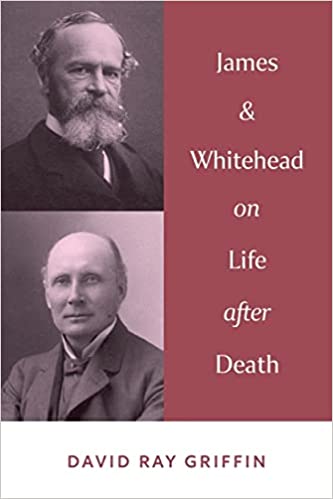Life-After-Death: Process Reflections
Process philosophy offers two views of the possibility of life after death, typically called objective immortality and subjective immortality.
In objective immortality, the self (understood as a linear series of subjective experiences, each of which is its own subject) does not continue after the death of the brain, but the experiences nonetheless influence all that comes afterward, however negligible. Objective immortality thus understood can also include the idea that the experiences are remembered (and thus affect) God who is, as it were, the Deep Memory of the universe (Whitehead's Consequent Nature of God). Here the experiences, and the momentary subjects to whom they belong, would not fade in importance, but be valued everlastingly. "I" would not live on after my death, but memories of me, on God's part, would survive and be woven into the beauty of God's ongoing life. Thus, there are two kinds of objective immortality: objective immortality in the world and objective immortality in God.
Subjective immortality, on the other hand, is the continuation of the self after the death of the brain, whereby the self undergoes a continuing journey. This journey may or may not be everlasting; it may be "immortal" in the sense of having no end, or it may be "immortal" in a metaphorical sense, as surviving the death of the brain and continuing for a finite duration. David Griffin argues for subjective immortality but does not spell out the particular form it would take, saying that direct and indirect evidence from parapsychology points to its plausibility and perhaps even its probability. Please note that all these kinds of immortality, objective and subjective, may be "true" from a process perspective.
If subjective immortality, or at least a continuation of the self's journey, is a reality, God would be at work in the journey after death no less than in the journey prior to death: as an indwelling lure toward the fulness of life relative to the situation at hand (through initial aims) and as a companion in the journey, sharing in the sufferings and joys. There could be spiritual growth after death: a soul-gentling.
The essay below by Jay McDaniel builds upon the possibility of subjective immortality and soul-gentling; and the one after that, by John Cobb, covers objective immortality in God. At the bottom of the page please find a video by John Cobb that addresses the topic of death in a general and comprehensive way.
Jay McDaniel, 1/30/2022

